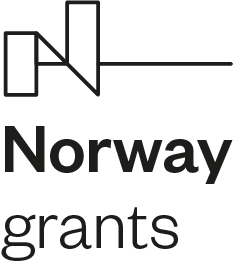Project implementation date: 1 November 2021 to 30 April 2024.

Introduction of the project
Within the framework of the presented project, we will focus on effective and proven assistance to convicts before the expected end of their sentence and subsequently on assistance in meeting the defined goals after release, with the primary objective being their reintegration into life and prevention of their subsequent recidivism. The main problem is the recidivism rate of convicted persons, which is 63% according to the statistics of the Ministry of Justice. Recidivism is caused by insufficient reintegration in certain areas (chiefly not finding legal employment and unstable financial situation) and insufficient or very problematic institutional care for persons after release. We see a remedy for this situation in effective social assistance for persons who leave the prison environment but are not really prepared for the transition to normal life “beyond the gates”. This means that more serious problems are likely to arise in their transition, which cannot be 100% predicted during their sentence. These may be different situations for which the prisoner cannot practically prepare before release (e.g. applying for real jobs) or cases where their skills and abilities do not allow for a smooth transition to freedom (e.g. insufficient qualifications for the labour market). While the Prison Service (PS), by virtue of its authority, provides appropriate care upon release from prison to prepare the prisoner for the transition to freedom, its statutory competences and the consequence staff capacity are limited and so cannot provide for a number of important areas. The way it works is that prison staff can rehearse job interviews or help prepare a CV with clients, for instance, but they cannot provide assistance in securing employment for the client upon their release. At the same time, prison staff no longer have the legal authority and competence to assist the ex-prisoner in any way. It is therefore clear that, although the release division prepares the prisoner for life beyond the gates, the reality at liberty is different. By that time the ex-prisoner no longer has any support, and as time goes on various problems associated with poor integration of the ex-prisoner begin, often leading to re-offending. We are aware of this fact and so is the PS, but its hands are tied by the law and its powers do not extend beyond the prison. This is where we see the potential for continuity in the care by the PS and reintegration programs at liberty – in the prisoner’s transition to freedom and their first months of liberty. The aim of the project is to update and supplement the existing methodological procedures and subsequently to implement the reintegration program of Mentoring in the areas of housing, employment, finances, relationships, legal services and psychological support for persons leaving 5 prisons in the Czech Republic, namely Nové Sedlo, including the Drahonice facility, Pilsen, Příbram, České Budějovice and Rapotice.
Objective and expected benefits of the project
The aim of the project is to reintegrate 150 persons after serving a prison sentence (SPS) through a Mentoring program at five prisons in the Czech Republic to prevent re-offending by these persons.
Target groups of the project
Two TG will be involved in the project:
These will be persons serving a prison sentence (SPS) preparing for release and persons released from serving a prison sentence (SPS), including parolees. They will be involved in the project during the implementation phase of the Mentoring program through direct work with mentors. The total number will be 30 persons from 5 prisons in the Czech Republic. This figure was determined taking into account the number of persons coming out of the given prisons in the planned period of implementation of the Mentoring program (23 months) and was deemed to be realistic during the preparation of the project with the given prisons. Based on prior experience, we assume that work with about 130 persons will begin even during their sentence, i.e. about 6 months before their release from prison, and work with 20 persons will begin once they are already at liberty. This number is based on the experience that it is more effective to establish cooperation with the client while they is serving their sentence with the help of the prison staff, than when they are already at liberty. These persons will meet the criteria for participation in the Mentoring program and will show the greatest reintegration potential based on the questionnaires developed according to the methodology. They will not be dependent on alcohol or other drugs. Clients returning to freedom usually need someone to guide them through the whole process of transition to freedom from beginning to end; mere occasional consultation or dealing with partial matters is not enough. Clients often do not remember and do not understand official duties. The mentor will be there to help them grasp the entire process and ease their communication, to follow up on deadlines, rights and obligations with them, and to strengthen their personal competences and motivation so that the process of reintegration goes well, and re-offending is avoided.
Na svobodu s mentorem, project registration number: SP-JU1A-009
Financed from the Norwegian Funds 2014-2021 in the amount of CZK 5,040,000
Ing. Jaroslav Kovář, e-mail: jaroslav.kovar@cppp.cz
Načítám data ...